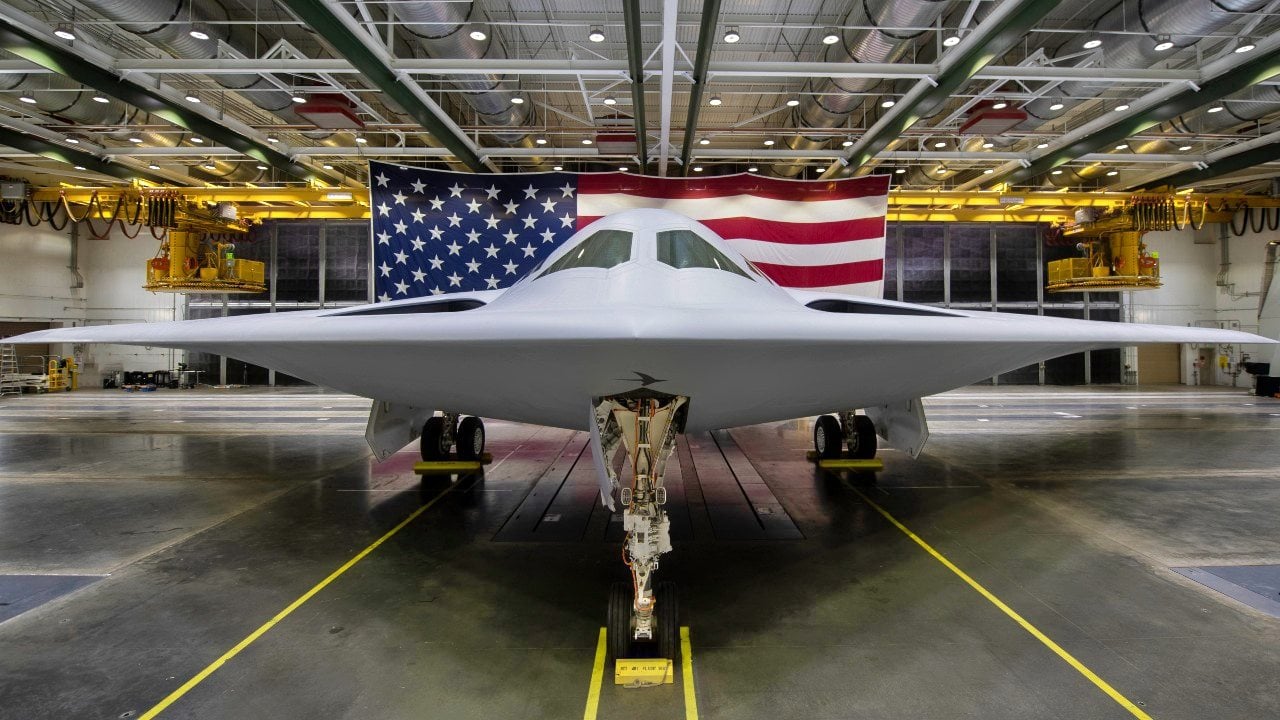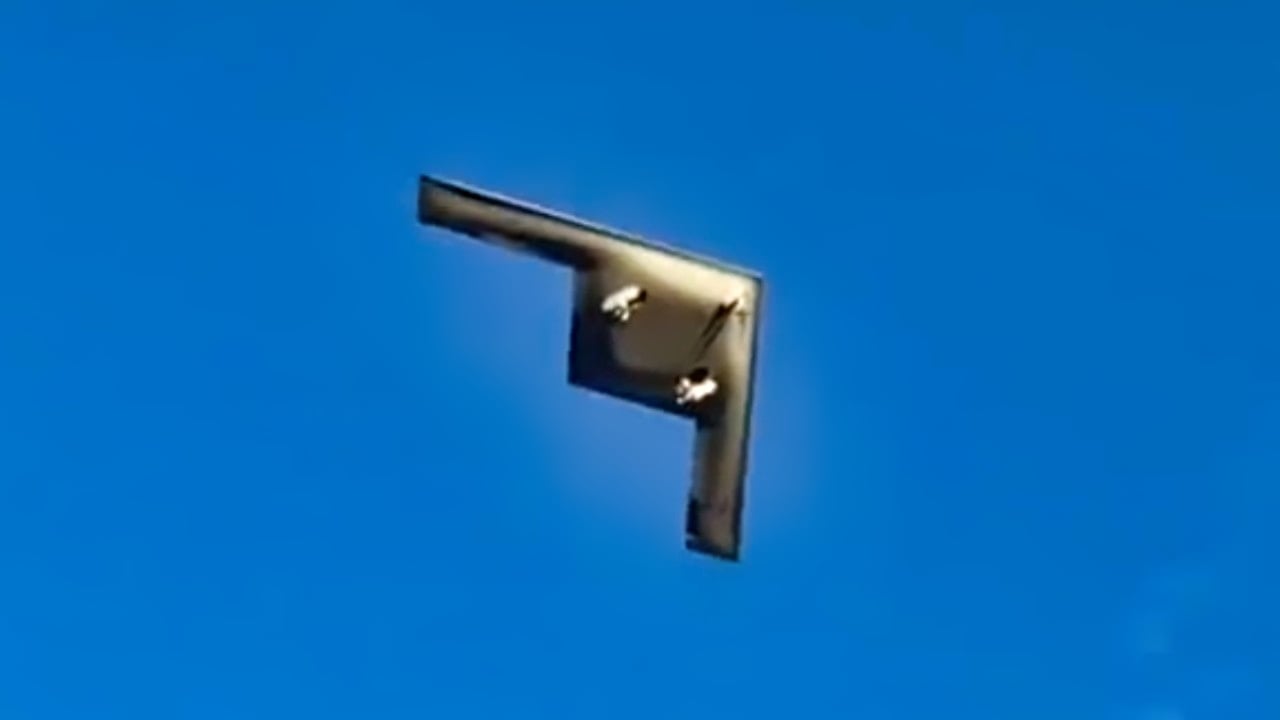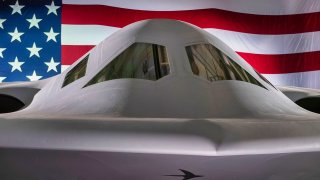The Air Force Would Freak if the B-21 Raider Program was 'Terminated'
Washington must prioritize deterrence, especially with a reliable, long-range strategic stealth bombing capability. The B-21 Raider is poised to be the most sophisticated bomber ever built, intended to replace the aging B-2 Spirit.
Summary and Key Points: Washington must prioritize deterrence, especially with a reliable, long-range strategic stealth bombing capability. The B-21 Raider is poised to be the most sophisticated bomber ever built, intended to replace the aging B-2 Spirit.

-The U.S. Air Force aims to acquire many B-21s to enhance capabilities and strengthen deterrence, although budget constraints may limit numbers.
-The B-21 is essential for maintaining America’s nuclear triad and deterrence against near-peer rivals like China and Russia. In an era where nuclear warfare is a growing threat, cutting the B-21 program would severely compromise U.S. national defense.
The B-21 Raider: America's Key to Maintaining Air Superiority
With the world order we know it tending toward collapse, Washington must ready itself to survive in a world that is decidedly anti-American.
Deterrence is one key plank in that survival strategy. Sadly, as I recently told an audience at the Heritage Foundation, “deterrence is dead.” Restoring deterrence must be a leading priority for the next president, and a primary element of any deterrence strategy is having a reliable, long-range strategic stealth bombing capability. America’s existing stealth bombers, such as the B-2 Spirit, are aging and need to be replaced.
Hence, the creation of the B-21 Raider.
B-21: A Bomber America Needs
The new B-21 will likely be the most sophisticated bomber ever built. The U.S. Air Force wants a lot of these bad boys (they’ll be lucky if they even get 100) to replace the B-2, increase capabilities, and strengthen deterrence. Yet Congress is understandably balking at this program. Sure, it’s an awesome suite of technologies, and if it all goes to plan, it’ll advance America’s manned stealth bombing capabilities significantly.
On the other hand, however, America appears to be on the brink of some kind of debt crisis. Interest payments on the national debt have already surpassed annual defense spending for the first time. So the Pentagon is not going to be able to justify the kind of expenditures it has for the last 80 years. This is why the Senate's proposed National Defense Authorization Act slashes funding for the Navy’s sixth-generation F/A-XX carrier warplane by some 90%. It’s why the Air Force’s Next Generation Air Dominance fighter program is in jeopardy.
The B-21 is subject to the same realities. But unlike a sixth-generation warplane, which would be redundant and costly, America actually needs a reliable long-range stealth strike capability. With the B-2s aging out of service, unless the B-21 Raiders are given the approval they need – and are built in a timely and reliable manner – the United States will lack the stealth strike capabilities it has become accustomed to for the last several decades.
Without this cornerstone of U.S. national defense, America’s ability to deter near-peer rivals such as China or Russia will suffer.
A Key Plank In America’s Nuclear Triad
The B-21 is described as a “nuclear-capable, penetrating strike stealth bomber” that “will be a component of a larger family of systems for conventional Long Range Strike, including intelligence, Surveillance, and Reconnaissance, electronic attack, communication and other capabilities.” According to the Air Force’s official description, this warbird will be able to “accommodate manned or unmanned operations. Additionally, it will be able to employ a broad mix of stand-off and direct-attack munitions.”
My colleague Harrison Kass has argued that “were the B-21 to be canceled, were the U.S. left without a stealth bomber option, [America’s] nuclear triad would be compromised.”
We are living in an age where the prospect of nuclear warfare is more prevalent than it has been in decades.
The United States, because of bureaucratic inertia, refuses to design and deploy the kind of space-based weapons defenses needed to protect the homeland from these strikes. What’s more, America’s nuclear weapons arsenal is in dire need of modernization, and possibly expansion. The nuclear triad puts redundancies in place.

The long-range stealth bomber is a key component of that triad. The B-21 will be it, unless Congress chooses to cut the program before it even takes wing. In this current environment, removing America’s long-range stealth strike capabilities is a really bad idea—even if the price tag is high for the B-21.
Author Experience and Expertise: Brandon J. Weichert
Brandon J. Weichert, a National Interest national security analyst, is a former Congressional staffer and geopolitical analyst who is a contributor at The Washington Times, the Asia Times, and The-Pipeline. He is the author of Winning Space: How America Remains a Superpower, Biohacked: China’s Race to Control Life, and The Shadow War: Iran’s Quest for Supremacy. His next book, A Disaster of Our Own Making: How the West Lost Ukraine, is due October 22 from Encounter Books. Weichert can be followed via Twitter @WeTheBrandon.
All images are Creative Commons or Shutterstock.
From the Vault
Russia Freaked Out: Why the U.S. Navy 'Unretired' the Iowa-Class Battleships
Battleship vs. Battlecruiser: Iowa-Class vs. Russia's Kirov-Class (Who Wins?)


